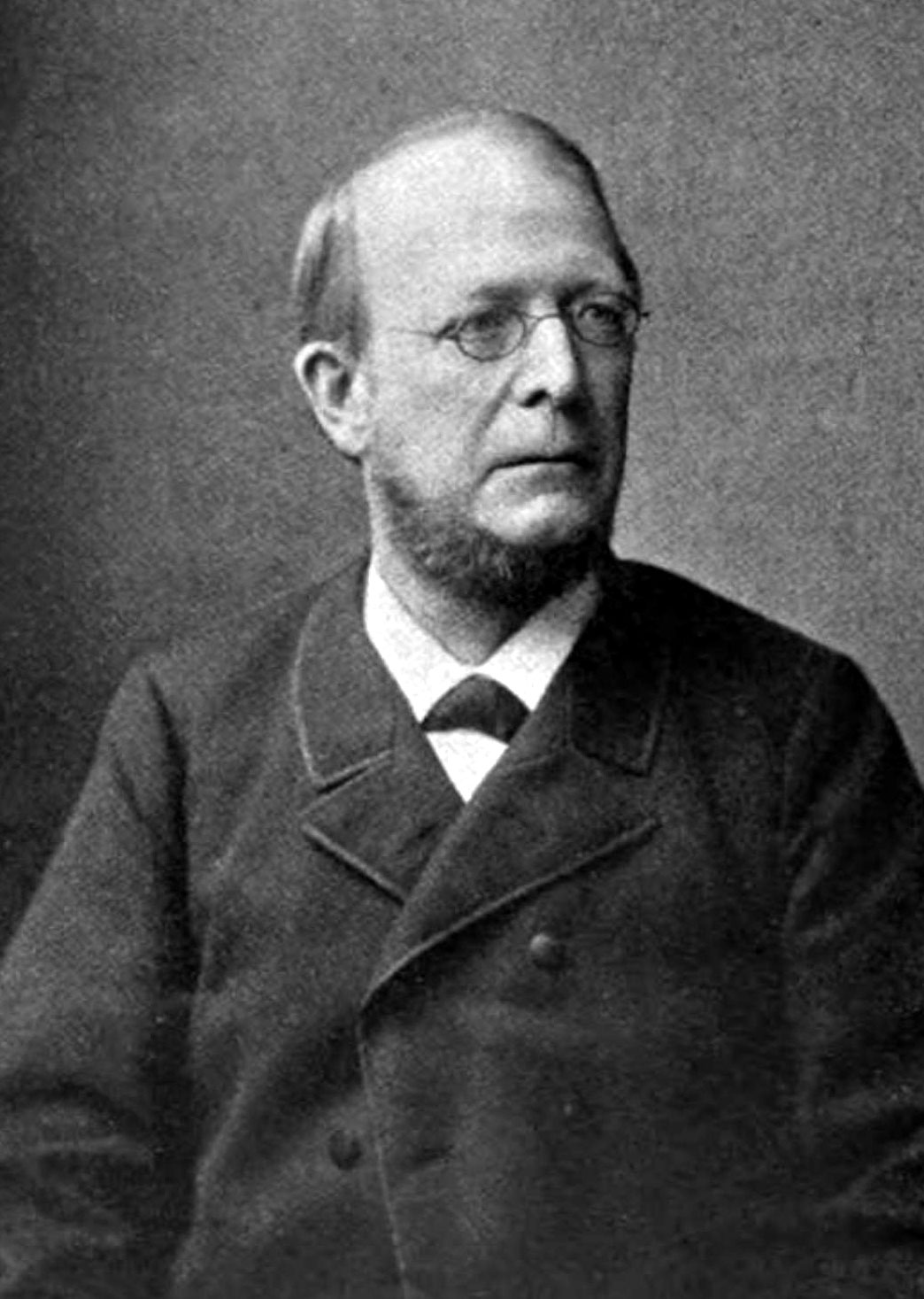Richard Adelbert Lipsius on:
[Wikipedia]
[Google]
[Amazon]
 Richard Adelbert Lipsius (14 February 1830 in
Richard Adelbert Lipsius (14 February 1830 in
 Richard Adelbert Lipsius (14 February 1830 in
Richard Adelbert Lipsius (14 February 1830 in Gera
Gera is a city in the German state of Thuringia. With around 93,000 inhabitants, it is the third-largest city in Thuringia after Erfurt and Jena as well as the easternmost city of the ''Thüringer Städtekette'', an almost straight string of cit ...
, Thuringia
Thuringia (; german: Thüringen ), officially the Free State of Thuringia ( ), is a state of central Germany, covering , the sixth smallest of the sixteen German states. It has a population of about 2.1 million.
Erfurt is the capital and larg ...
– 19 August 1892 in Jena
Jena () is a German city and the second largest city in Thuringia. Together with the nearby cities of Erfurt and Weimar, it forms the central metropolitan area of Thuringia with approximately 500,000 inhabitants, while the city itself has a popu ...
, Thuringia) was a German Protestant theologian
Theology is the systematic study of the nature of the divine and, more broadly, of religious belief. It is taught as an academic discipline, typically in universities and seminaries. It occupies itself with the unique content of analyzing the ...
.
Biography
Richard Adelbert Lipsius was the son of K. H. A. Lipsius (d. 1861), who was rector of the school of St. Thomas atLeipzig
Leipzig ( , ; Upper Saxon: ) is the most populous city in the German state of Saxony. Leipzig's population of 605,407 inhabitants (1.1 million in the larger urban zone) as of 2021 places the city as Germany's eighth most populous, as wel ...
, was born at Gera
Gera is a city in the German state of Thuringia. With around 93,000 inhabitants, it is the third-largest city in Thuringia after Erfurt and Jena as well as the easternmost city of the ''Thüringer Städtekette'', an almost straight string of cit ...
on 14 February 1830. He studied at Leipzig, and eventually (1871) settled at Jena
Jena () is a German city and the second largest city in Thuringia. Together with the nearby cities of Erfurt and Weimar, it forms the central metropolitan area of Thuringia with approximately 500,000 inhabitants, while the city itself has a popu ...
as professor ordinaries. He helped to found the "Evangelical Protestant Missionary Union" and the "Evangelical Alliance
The Evangelical Alliance (EA) is a national evangelical alliance, member of the World Evangelical Alliance. Founded in 1846, the activities of the Evangelical Alliance aim to promote evangelical Christian beliefs in government, media and societ ...
", and from 1874 took an active part in their management. He died at Jena on 19 August 1892.
Works
Lipsius wrote principally on dogmatics and the history of early Christianity from a liberal and critical standpoint. ANeo-Kantian
In late modern continental philosophy, neo-Kantianism (german: Neukantianismus) was a revival of the 18th-century philosophy of Immanuel Kant. The Neo-Kantians sought to develop and clarify Kant's theories, particularly his concept of the "thin ...
, he was to some extent an opponent of Albrecht Ritschl
Albrecht Ritschl (25 March 182220 March 1889) was a German Protestant theologian.
Starting in 1852, Ritschl lectured on systematic theology. According to this system, faith was understood to be irreducible to other experiences, beyond the scope ...
, demanding
This, in part, is Lipsius's attitude in ''Philosophie und Religion'' (1885). In his ''Lehrbuch der evangelisch-protestantischen Dogmatik'' (1876; 3rd ed., 1893) he deals in detail with the doctrines of "God", "Christ", "Justification" and the "Church".
Herausgeber:
From 1875 Lipsius assisted Karl August von Hase
Karl August von Hase (25 August 1800 – 3 January 1890) was a German Protestant theologian and church historian.
Background
He was born at Steinbach (near Penig) in Saxony. He studied at Leipzig and Erlangen, and in 1829 was called to Je ...
(1800-1890), Otto Pfleiderer
Otto Pfleiderer (1 September 1839 – 18 July 1908) was a German Protestant theologian. Through his writings and his lectures, he became known as one of the most influential representatives of liberal theology.
Biography
Pfleiderer was born at ...
(1839-1908) and Eberhard Schrader
Eberhard Schrader (7 January 1836 – 4 July 1908) was a German orientalist primarily known for his achievements in Assyriology.
Biography
He was born at Braunschweig, and educated at Göttingen under Ewald. In 1858 he won a university prize ...
(1836-1908) in editing ''Jahrbücher für protestantische Theologie'', and from 1885 until 1891 he edited the ''Theologische Jahresbericht.''
His other works include:
*''Die Pilatusakten'' (1871, new ed., 1886)
*''Dogmatische Beiträge'' (1878)
*''Die Quellen der ältesten Ketzergeschichte'' (1875)
* ''Zur Quellenkritik des Epiphanios.'' Wien, Braumueller, (1865)
*''Die apokryphen Apostelgeschichten'' (1883-1890)
*''Hauptpunkte der christl. Glaubenslehre im Umriss dargestellt'' (1889)
* and commentaries on the Epistles to the Galatians, Romans
Roman or Romans most often refers to:
*Rome, the capital city of Italy
*Ancient Rome, Roman civilization from 8th century BC to 5th century AD
*Roman people, the people of ancient Rome
*''Epistle to the Romans'', shortened to ''Romans'', a letter ...
and Philippians
The Epistle to the Philippians is a Pauline epistle of the New Testament of the Christian Bible. The epistle is attributed to Paul the Apostle and Timothy is named with him as co-author or co-sender. The letter is addressed to the Christian c ...
in H.J. Holtzmann's ''Handkommentar zum Neuen Testament'' (1891-1892)
Notes
References
* *Further reading
*External links
* {{DEFAULTSORT:Lipsius, Richard 1830 births 1892 deaths People from Gera 19th-century German Protestant theologians German biblical scholars New Testament scholars 19th-century German male writers German male non-fiction writers